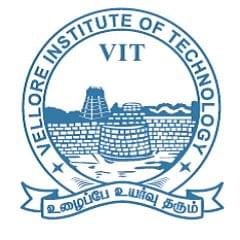Embarking on a Zoological Odyssey: Navigating
the Path to a PhD in Zoology
Introduction
Embarking on a journey towards a PhD in Zoology at top college is not merely an academic pursuit but a profound
commitment to understanding the intricate web of life that surrounds us. This
blog serves as a guide, outlining the admission process, eligibility criteria,
and a glimpse into the syllabus that forms the foundation of this enriching
academic endeavour.
Admission
Eligibility
Before delving into the depths of zoological
research, prospective PhD candidates must meet certain eligibility criteria.
While specific requirements may vary between universities and programs, common
prerequisites typically include:
- Educational Background: A
master's degree in zoology or a related field is often required.
Alternatively, candidates from disciplines such as biology, ecology,
environmental science, or wildlife conservation may also be considered,
provided their coursework aligns with the program's focus.
- Academic Excellence:
Strong academic performance throughout previous studies, demonstrated
through transcripts and GPA (Grade Point Average), is crucial. Many
programs also require GRE (Graduate Record Examination) scores,
particularly in biology or related subjects.
- Research Experience:
Prior research experience, whether through independent projects,
internships, or laboratory work, is highly valued. This demonstrates an
applicant's commitment to scientific inquiry and their readiness for
doctoral-level research.
- Letters of Recommendation:
Letters from professors or supervisors familiar with the applicant's
academic and research capabilities are typically required. These letters
should highlight the applicant's strengths, potential for research, and
suitability for the PhD program.
- Statement of Purpose: A
compelling statement outlining the applicant's research interests, career
goals, and alignment with the program's faculty expertise is essential.
This allows the admissions committee to assess the applicant's fit with
the program's research strengths and objectives.
The
Syllabus: Mapping the Academic Landscape
Once admitted, PhD candidates in zoology
embark on a rigorous academic journey that blends foundational coursework with
specialized training tailored to their research interests. While specific
courses may vary depending on the program and the candidate's focus area, a
typical syllabus might include:
- Core Courses in Zoology:
Foundational courses provide a comprehensive understanding of animal
biology, evolution, ecology, behavior, and physiology. These courses
ensure that all students have a solid grounding in the fundamentals of
zoological sciences.
- Advanced Topics in Specialization:
Courses delve deeper into specialized areas of interest, such as molecular
ecology, conservation biology, animal behaviour, or marine biology. These
courses are often taught by faculty members conducting cutting-edge
research in these fields, offering students the opportunity to engage with
current research trends and methodologies.
- Research Methods and Techniques:
Courses focused on research methodologies equip students with the
necessary tools to design and conduct experiments, analyse data, and
interpret results. Training in fieldwork techniques, laboratory protocols,
and statistical analysis is typically included to prepare students for
their dissertation research.
- Seminars and Journal Clubs:
Regular seminars and journal clubs provide opportunities for students to
present their research progress, discuss recent scientific literature, and
receive feedback from peers and faculty. These forums foster intellectual
exchange and collaboration within the academic community.
- Elective Courses:
Depending on their research interests and career goals, students may
choose elective courses that complement their specialization. These
courses could include topics such as bioinformatics, animal physiology,
wildlife management, or environmental policy.
Beyond the
Classroom: Research and Dissertation
Central to the PhD in Zoology is the research
component culminating in a dissertation—a substantial piece of original
research that contributes new knowledge to the field. Key stages of the
research process include at best Ph.d Zoology college:
- Proposal Development:
Early in their program, students develop a research proposal outlining
their dissertation objectives, hypotheses, methodology, and expected
contributions to the field. This proposal undergoes review and approval by
a faculty committee.
- Data Collection and Analysis:
Students conduct research in the field or laboratory, collect data using
established protocols, and analyse their findings using appropriate
statistical methods. This phase requires meticulous attention to detail
and often involves collaboration with peers and faculty advisors.
- Writing and Defending the Dissertation: The culmination of the PhD journey involves writing a
comprehensive dissertation that presents the research findings, discusses
their significance in the context of existing literature, and proposes
future directions for research. Upon completion, students defend their
dissertation in an oral examination before a committee of faculty members.
Conclusion
In conclusion, pursuing a PhD in Zoology
is a transformative experience that combines academic rigor with a passion for
understanding the natural world. From meeting admission criteria to navigating
a diverse syllabus and conducting groundbreaking research, every step of the
journey contributes to the advancement of scientific knowledge and prepares
students for impactful careers in academia, conservation, research, and beyond.
As aspiring zoologists embark on this odyssey, they join a community of
scholars dedicated to unravelling the mysteries of animal life and safeguarding
biodiversity for future generations.












